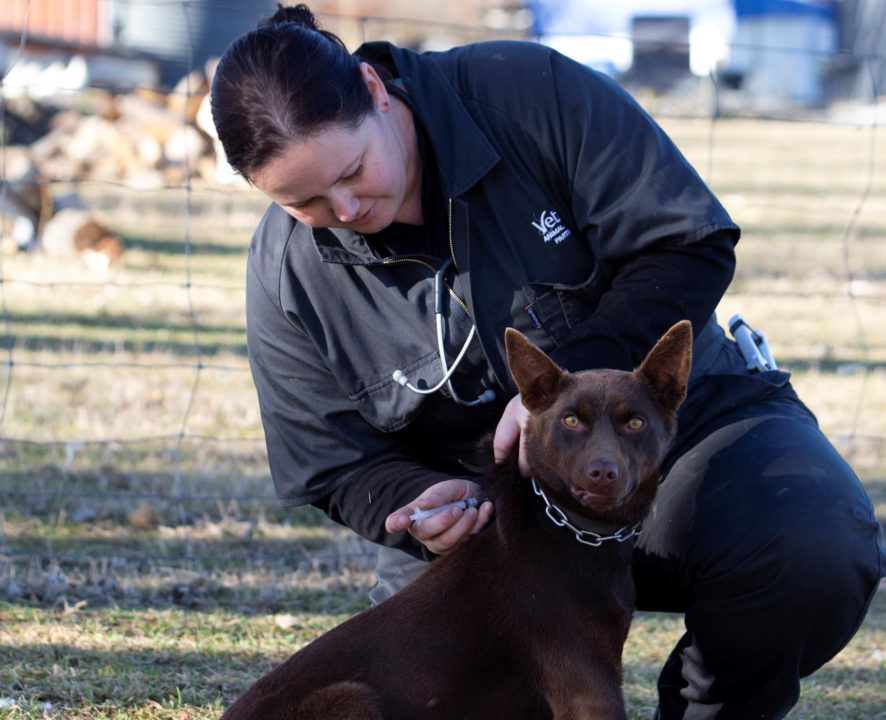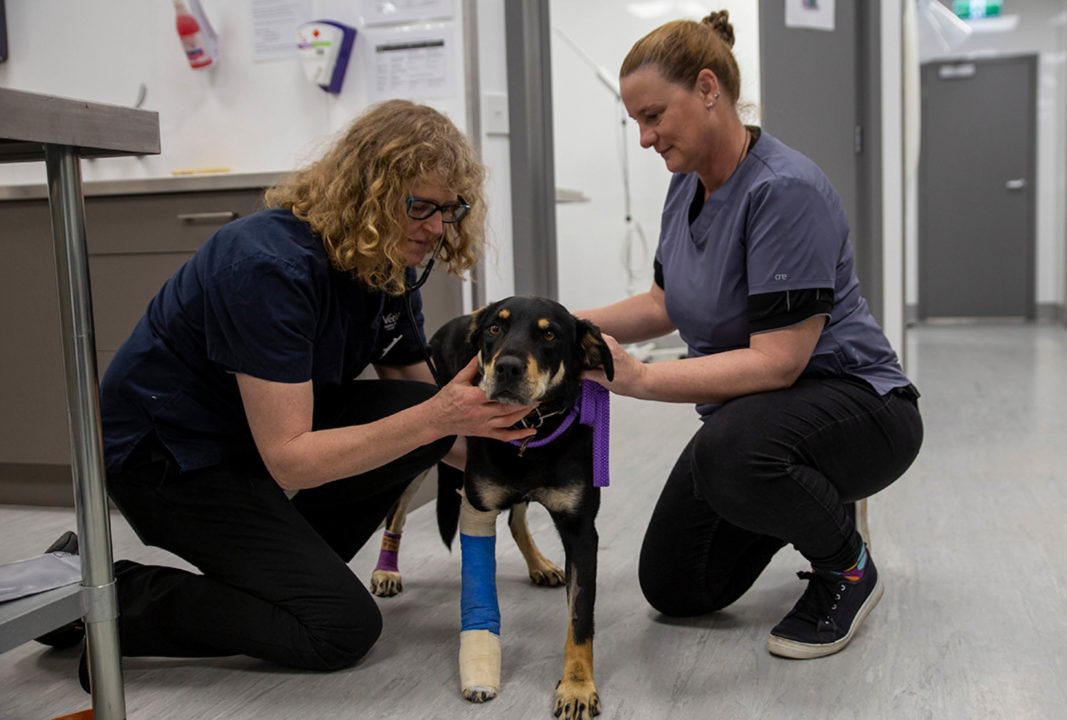The first four signups to the DogTrax programme using our online portal will receive a FREE bag of Black Hawk Working Dog food (20kg) from their local clinic.
Keeping a dog up to date with their vaccinations is a key part of responsible dog ownership
Vaccination is the best way to protect dogs against Parvovirus, Kennel Cough and Distemper, and also to prevent them from passing them on. We can also vaccinate against Leptospirosis if required. To get your dogs vaccinated, call us to arrange an in-clinic vaccination or to let us know what time works for you on-farm.
Parvovirus
Parvovirus is a highly contagious virus which can spread either by exposure to an infected dogs’ faeces or indirectly, via contact with a contaminated environment, person or object. The symptoms of this potentially deadly virus include severe bloody diarrhea, anorexia, lethargy, vomiting, fever, weight loss, depression, dehydration and weakness.
To fully protect your dog, they need to be vaccinated every three years after the initial puppy vaccinations and booster.
Kennel Cough
Kennel Cough is a respiratory infection and is highly contagious, spreading from infected dogs and shared objects. This illness causes an inflammation of the dog’s upper respiratory tract and the main symptom is a harsh, hacking cough. We can provide you with a vaccine for your dogs to protect from Kennel Cough.
To fully protect your dog, they need to be vaccinated every twelve months.
The TeamMate study included:
Vetlife can come to you and vaccinate all your dogs at the same time. If you would like to book in an on-farm vaccination run, please call your local clinic.

The average working dog travels an estimated 20km a day
This makes them high performance athletes of farming, which takes a toll on their body. Arthritis (a musculoskeletal condition) in dogs is extremely common and as dogs get older, the cartilage surface of their joints begins to wear, and this can cause cartilage cells to die. The resulting release of enzymes cause inflammation and excess joint fluid.
Symptoms include difficulty in scaling heights, difficulty jumping up or down, disinterest in running, holding a limb in an irregular position and discomfort in the colder months.
If you have any questions relating to the health of your working dog, please call us.
TeamMate Facts
